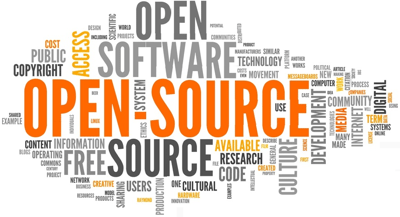
I was moderating a panel discussion about Open Banking and the panel’s opening was some research presented by Steve Ogborn and Benedict Ireland of the Unlimited Group. The guys said that only 9% of consumers had heard of Open Banking. That means 91% had no idea what it was. Even when it was explained to them, only 41% were interested and only 11% were really interested.
I think this strikes to the heart of some of the things I’ve talked about, as in consumers are pretty reticent about banking. They just want a safe store for their money and, once they’ve got one, there’s not much reason to change it. The fact that a third of UK bank customers don’t use online banking and two-thirds don’t use mobile banking, shows that consumers are wary of technology in banking. Equally, there’s already quite a lot of media brewing to put heavy fear into the customers’ heads about Open Banking. For example, the BBC wrote this the other day:
Why banks will share your financial secrets
Your financial information, such as what you spend and where, and how often you go into debt is private. It is information only available to you and your bank. It has been like that for years, but all that is about to change … Diane Coyle, economics professor at Manchester University, says: “I was, and still am, sceptical about how much people will want to give access to their financial information to third party apps, and surely the steady drip of stories about security breaches since the plan was announced won't have helped.”
Recent research by Accenture found that 85% of those asked said the fear of fraud would put them off sharing data, and 69% said they would not share financial data with businesses that were not banks.
All in all, consumers are not going to embrace Open Banking easily … or will they?
I find it interesting that when researchers ask bank customers do you want third party firms to access your bank account data, of course most people will say no. However, if you asked them would you like to be able to pay your friends via Facebook Messenger? they are more likely to say yes. If you asked them do you have concerns about Amazon holding your payment details, then they have no issue at all. It’s all about how something is presented.
It is similar to when I think about mobile payments and ask people do you make mobile payments, many people think they don’t; however, if you ask folks whether they make in-app purchases for games on their phone and they say yes, without realising or thinking that this is a mobile payment.
We live in intriguing times. Most think Open Banking is a good thing however, and it enables banks to share customer data in either an anonymous form or, with permission, in a form where a customers trusted apps – Facebook, Amazon, Apple and more – can leverage the information to deliver more frictionless experiences.
As with all regulation, there is the law of unintended consequences and, regardless of any research I see or read, I think the unintended consequence of Open Banking is that everything a bank does today will be democratised and distributed into 1,000 FinTech firms and trusted social and commercial apps from Uber to Starbucks. Just don’t trust some of these guys with your data. Be warned.
Uber concealed massive hack that exposed data of 57m users and drivers
Chris M Skinner
Chris Skinner is best known as an independent commentator on the financial markets through his blog, TheFinanser.com, as author of the bestselling book Digital Bank, and Chair of the European networking forum the Financial Services Club. He has been voted one of the most influential people in banking by The Financial Brand (as well as one of the best blogs), a FinTech Titan (Next Bank), one of the Fintech Leaders you need to follow (City AM, Deluxe and Jax Finance), as well as one of the Top 40 most influential people in financial technology by the Wall Street Journal's Financial News. To learn more click here...

